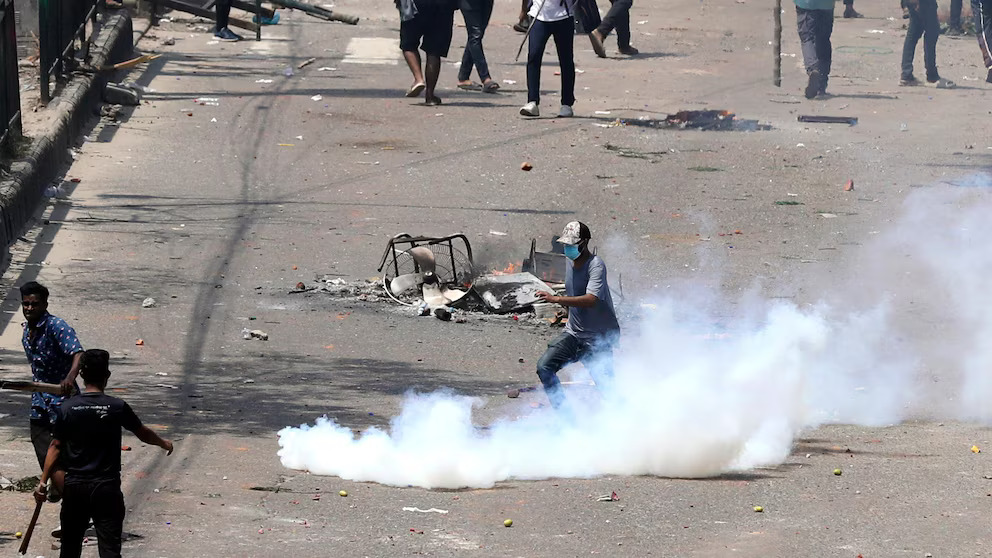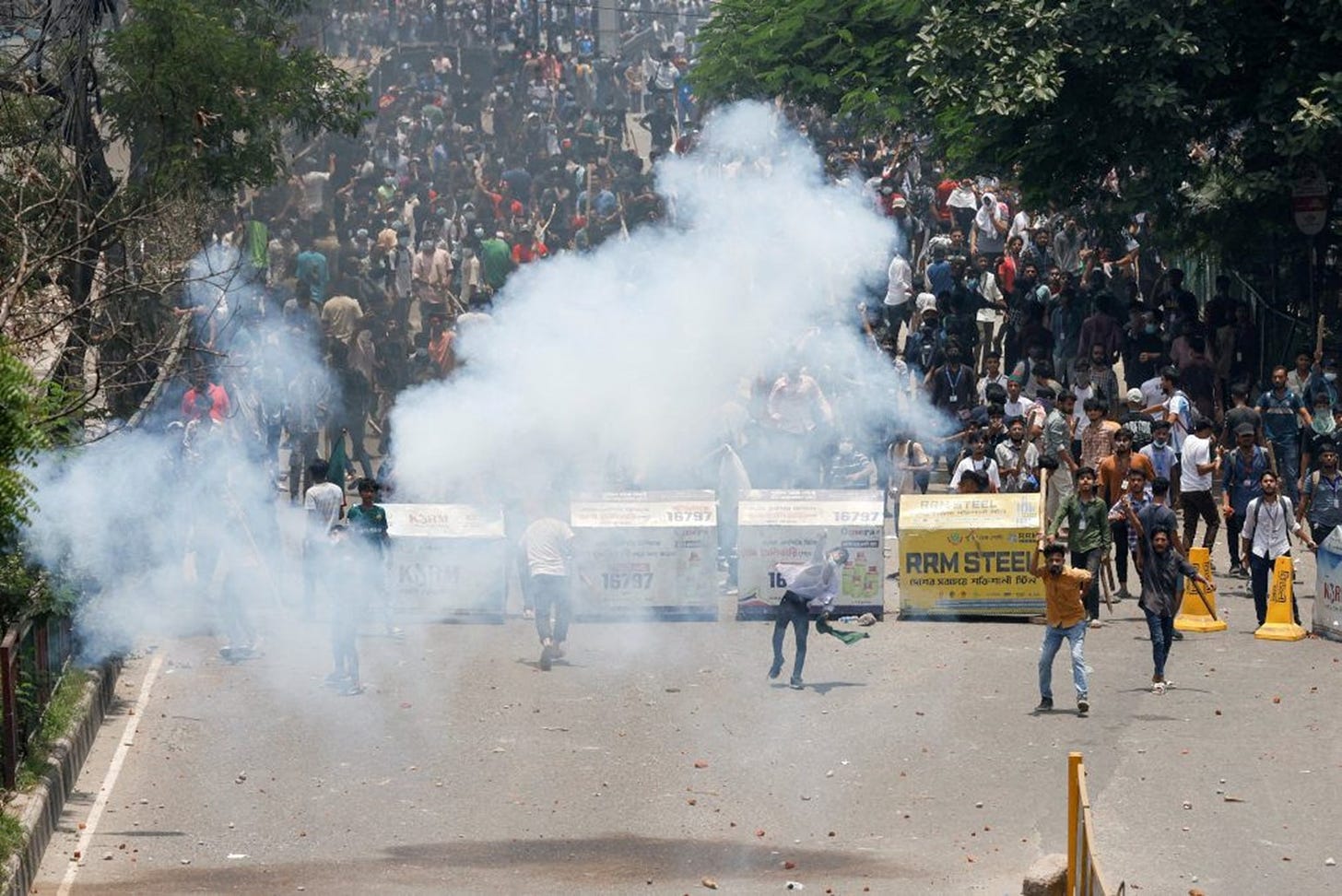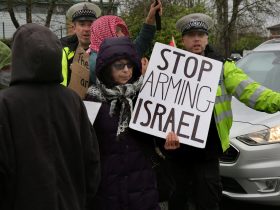Bangladesh remained without internet for a fifth day as the government declared a public holiday on Monday to maintain tight control following violent protests over a controversial government job quota system.
The situation calmed down after a Supreme Court order reduced the veterans’ quota from 30% to 5% for government jobs. This change came after days of clashes between police and student protesters, resulting in over a hundred deaths, though official figures have not been released.
The initial government response included a curfew with a shoot-on-sight order and military patrols in the capital and other areas. The protests were driven by students opposing the job quota that reserved 30% of government positions for veterans’ relatives, arguing it was discriminatory.
The violence and unrest led to significant disruptions, with the Supreme Court’s decision bringing a temporary halt to the immediate violence.

Despite the reduction in the veterans’ quota, student protesters continued to demand the restoration of internet services, the withdrawal of security forces from universities, and the reopening of student dormitories. They issued a 48-hour ultimatum for these demands to be met.
The students also called for some university officials to resign for failing to protect campuses during the protests, vowing to continue their movement if their demands were not addressed.
The internet shutdown significantly hampered the protesters’ ability to organize and communicate, causing frustration and fear among them. Key organizers expressed concerns about the government’s attempts to divide them and disrupt their unity.
The US Embassy in Dhaka described the situation as volatile and unpredictable, advising Americans to avoid large crowds and reconsider travel plans due to the ongoing unrest and the presence of the military.
The protests have posed a serious challenge to Prime Minister Sheikh Hasina’s government, which faced accusations of using the quota system to benefit its supporters.
The main opposition party, the Bangladesh Nationalist Party (BNP), supported the protests, planning to organize their own demonstrations. The political tension between the Awami League and the BNP has escalated, with both parties blaming each other for the unrest, reflecting the deep-seated political divisions in Bangladesh.







Leave a Reply